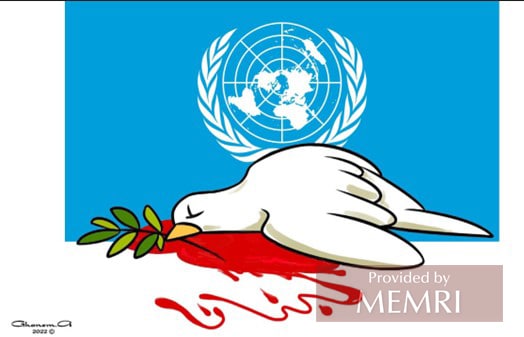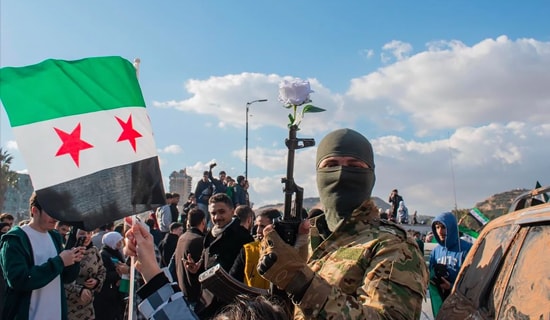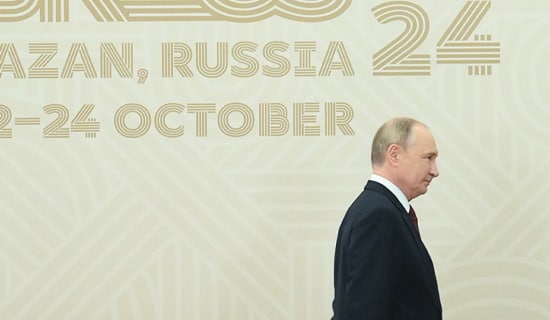Following the incident that occurred on December 14, 2022 in the village of Al-Aqbieh in South Lebanon, during which Irish soldier Seán Rooney (23) was killed and three other members of the UNIFIL unit were wounded, Hizbullah took pains to stress that it had not been involved in the incident. Wafiq Safa, head of Hizbullah's Coordination and Communications Department, hastened to explain to the Reuters news agency that it was an "unintentional incident that took place between the residents of Al-Aqbieh and individuals from the Irish unit." He conveyed his condolences to the UNIFIL forces and called not to involve Hizbullah in the matter.[1] Ibrahim Al-Moussawi, a Hizbullah MP who paid a condolence visit to the UNIFIL headquarters, called the death of the Irish soldier "a loss for all humanity," and urged that coordination and cooperation between UNIFIL and the authorities in Lebanon be increased in order to prevent the recurrence of such instances.[2] The Lebanese Al-Akhbar daily, which is close to Hizbullah, also contended that the incident was "the result of a succession of unintentional errors on the part of all those involved" and that neither UNIFIL nor Hizbullah had any interest in politicizing it in any way.[3]Furthermore, several days after the incident, Hizbullah reportedly arrested two people suspected of involvement in it.[4]
However, despite the efforts of Hizbullah officials to deny any involvement by the organization, articles in the Lebanese press insisted that Hizbullah had been responsible for it and for the death of the Irish soldier. These articles contested Hizbullah's claim that the assailants were South Lebanon locals, asserting that the shooting was deliberate and carried out on orders from Hizbullah. This organization, they added, has usurped control of South Lebanon from the Lebanese government, and this incident, like similar incidents before it, is further evidence of the grim reality in Lebanon whereby the state is unable to impose its authority and sovereignty over this region. Some of the journalists claimed that the killing of the Irish soldier was Hizbullah's response to UN Resolution 2650, from August 31, 2022, which extended UNIFIL's mandate in Lebanon by another year and stipulates that UNIFIL has freedom of operation in the areas under their authority, with no need for prior approval from anyone. When it was passed this resolution sparked furious reactions from Hizbullah officials, who called it "a grave development that transforms [UNIFIL] into an occupying force."[5]

Irish UNIFIL soldier Seán Rooney (image: Nidaalwatan.com, December 20, 2022)
This report reviews excerpts from articles by Lebanese journalists who hold Hizbullah responsible for the death of the Irish UNIFIL soldier.
Lebanese Columnist: The Death Of The Irish Soldier Was The First Price Paid By UNIFIL For The Amendment To Resolution 1701
On December 17, 2022, in his column in the Lebanese Nidaa Al-Watan daily, Tony Francis wrote: "On August 31, 2022, the UN Security Council renewed the mandate of the [UNIFIL] international forces in the south for another year. The resolution includes an important amendment related to [UNIFIL's] activity, which stresses that it does not need 'prior authorization or permission from anyone to undertake its mandated tasks and is authorized to conduct its operation independently.' However, the matter did not end there, for in his September 17, 2022 speech, Hizbullah Secretary-General Hassan Nasrallah warned the international bodies that, 'if they intend to operate [in South Lebanon] independently of the state and its army, which is responsible for the activity south of the Litani, they will create a situation not to their benefit.' His comments were preceded by statements made six days earlier by Sheikh Mohammad Yazbek [a founder of Hizbullah and Iranian leader Ali Khamenei's representative in Lebanon]…, who attacked the Security Council resolution and claimed that it turned UNIFIL into an 'occupying force.'
"On Wednesday night an Irish UNIFIL soldier was killed, in what could be seen as the first price [paid by UNIFIL] for the amendment of the international resolution. The explanation given for his death was that his vehicle strayed from the regular route, prompting angry 'locals' to shoot at him. This [Irish] soldier, who came [to Lebanon] from the north of the globe on a mission of peace, suffered the same fate as his comrade, the Lebanese officer and pilot Samer Hanna, who strayed from his route in the air above the mountains of South Lebanon and was killed by similar fire in his own homeland.[6] We are likely to witness similar tragic incidents in the future if the current situation persists, in which it is unclear who rules this part of the country [i.e. South Lebanon].
"Neither Samer Hanna nor the Irish soldier deserved such a death. Samer Hanna deserved a country that controls its own lands, and the Irish soldier deserved to live a quiet life in the land of his birth, as do the thousands of his comrades in the international [force], who came from across the world to carry out a noble mission in a country whose residents have not known peace for the past 50 years. No matter who killed the Irish soldier, it is safe to assume that the promised investigation will not reveal his identity. [One may also assume] that the question of the viability of leaving the UNIFIL forces in South Lebanon will be raised aggressively by the mothers of its soldiers and by the governments of their countries…"[7]

The attack on the peacekeeping force is an attack on Lebanon itself (Al-Jumhouriya, Lebanon, December 16, 2022)
Lebanese Journalist: The Killing Of The Irish Soldier Was Intentional; Hizbullah Uses South Lebanon As A Forward Operating Base For Iran Against Israel
In his column in the Al-Nahar Lebanese daily, Lebanese journalist 'Ali Hamada wrote, "I wouldn't be exaggerating if I said that the killing of a soldier from UNIFIL's Irish battalion and the wounding of others was a very serious incident, because it was neither accidental nor 'unintentional' as Hizbullah claimed in its statement. Nor was it a response on the part of 'the locals.' [That is just] a term that Hizbullah hides behind when it wants to clash with UNIFIL forces that are trying to fulfil their mission in accordance with the relevant UN resolutions.
"This was an intentional attack. The shooting at the vehicle which was carrying the soldiers was deliberate, and couldn’t have occurred without an order from the organization's leadership. Even if the shooting wasn't intended to kill, but only to frighten the patrol and to convey a tougher message than usual, Hizbullah's disparaging response to the shooting on this force, which represents international legitimacy [i.e. the UN], was tantamount to 'vetoing' the recent UN resolution [of August 2022], which extended UNIFIL's mandate and asserted its right to hold patrols, enact surveillance, and conduct searches without need for permission from any element on the ground…
"[The fact that the Hizbullah] militia exercises this kind of 'veto' by taking up its weapons and shedding blood is clear evidence of the bitter reality that prevails in Lebanon. It proves that the state of Lebanon is nothing more than an illusion, for sovereignty is enforced in accordance with the law only among the sections of the Lebanese people who believe that national life should be conducted in accordance with the law, and not according to the rationale of force, which is currently espoused by the group [i.e. Hizbullah] that is committed to an external agenda [i.e. that of Iran]. Second, this reflects the weakness of the state, its institutions and its leaders, from the top of the pyramid to its base, when facing the oppressive force which actually holds the reins of power and of sovereign decision-making. Third, the official [Lebanese] decisions indicate that the cooperation between [Lebanon's state institutions] and Hizbullah in plotting conspiracies is much deeper and more extensive than people think…
"The investigation of the incident must go beyond the technical framework. We're sick of hearing the lie [that these attacks are a response by] 'locals.' The UN knows and understands that this euphemism, used by Hizbullah in UNIFIL's area of operation… is [just] a means… to prevent the international forces from thwarting Hizbullah's efforts to turn South Lebanon into a forward operating base on the border with Israel. The purpose of these efforts is not to 'liberate Jerusalem,' as is claimed in statements released by the Iranian regime and its local apparatuses in Lebanon and elsewhere. [The purpose is] to facilitate the promotion of Iranian policies and interests related to the broader struggle in the region. One can thus regard Lebanon, as well as Syria, Iraq, Gaza and Yemen, as buffer zones [protecting] the Iranian regime…
"We are not waiting for the findings of the Lebanese investigation… From what occurred we conclude that, while Ireland has lost soldiers, we Lebanese have suffered an [even] greater loss in terms of respect for the law and for the country's institutions…"[8]

The attack on UNIFIL (Al-Nahhar, Lebanon, December 17, 2022)
Lebanese Journalist: It Is Hizbullah That Controls South Lebanon And Initiates Operations Against UNIFIL Forces
Lebanese journalist As'ad Bechara wrote in a December 16 column in Nidaa Al-Watan titled "Who Remembers the Attack on the Spanish Battalion?": "…Several months after the inception of the UNIFIL mission following the 2006 war, there was an IED attack on [its] Spanish battalion that was operating in the south, in which five soldiers were killed and others were wounded… Despite the official [Lebanese] promises, the responsible element has not been identified to this day. This incident caused UNIFIL to completely change its mode of operation and focus all its efforts on protecting its soldiers and bases, instead of on implementing Resolution 1701. UNIFIL forces began traveling in armored vehicle and engaging in routine activities [and nothing more].
"[But] even in their routine activities UNIFIL forces encountered groups of 'locals' every time they attempted to carry out a raid or expose weapons south of the Litani. Groups of residents consistently attacked the forces and impeded them from carrying out their mission on the pretext that… UNIFIL may not enter any area without first informing the Lebanese Armed Forces and receiving their approval. This prevented UNIFIL from monitoring the implementation of Resolution 1701 and the UN published several reports holding Lebanon responsible for this. Moreover, Israel's exposure of the tunnels [excavated by Hizbullah from South Lebanon into northern Israel] conveyed to the international community that Lebanon was violating the international resolution and preventing the UNIFIL forces from carrying out their mission.
"The incident in Al-Aqbieh [in which an Irish UNIFIL soldier was shot and killed] once again focuses the spotlight on this difficult reality and points to Lebanon as the one responsible for it … It also indicates that the authority and control in the south [of Lebanon] are in the hands of Hizbullah, which has transformed the military and security presence [there] into a symbolic presence with no meaning or viability. The [Lebanese] government, for its part, has no tools to cope with this situation, which undercuts its presence there, except the weapon of condemnation.
"As a result, the incident at Al-Aqbieh will [also] be glossed over without an investigation, without us learning what happened and without the perpetrator, whose identity is known [i.e. Hizbullah], being held to account. The absurd [situation] in which Hizbullah, which orders these activities, is also the one which supports the agreement for delineating the [maritime] borders with Israel, will persist as well…"[9]
Lebanese Politician: The International Community And UNIFIL Are Capitulating To Hizbullah And Covering Up The Non-Implementation Of Resolution 1701
Charles Jabbour, head of the Media and Communications Department in Samir Geagea's Lebanese Forces party, which is known for its opposition to Hizbullah, wrote in his column in the Lebanese daily Al-Jumhouriya: "…Resolution 1701 calls for 'the establishment between the Blue Line and the Litani River of an area free of any armed personnel, assets and weapons other than those of the Government of Lebanon and of UNIFIL.' This significant clause of the resolution is not implemented… Everyone knows that this specific area is under the exclusive influence and control of Hizbullah, and that it is full of rocket stockpiles, combat equipment, and bases [disguised as centers that belong to] 'the locals,' which is code for Hizbullah… As long as UNIFIL does not operate in accordance with Resolution 1701, as long as Hizbullah's military infrastructure controls every single detail – contrary to what is explicitly stated in this resolution – and as long as the movements [of the UNIFIL forces] are so restricted that any deviation from their [usual] route results in their being blocked and fired on like a hostile patrol… we have no choice but to pose the following questions:
"Why does UNIFIL remain in Lebanon when it is not fulfilling its mandate in accordance with the relevant international resolutions? What obligates the international community to be subordinate to the forces on the ground [i.e. Hizbullah]? And why does it acquiesce to the conditions imposed by these forces? Why does the Security Council allow its resolutions to go unimplemented and agree to be regarded as a failed moral framework, devoid of any influence or ability to determine [events]? How does it tolerate this insult to its honor and its position? What prevents the international community from implementing its resolutions, or at least Resolution 1701, by force? Especially considering that there is a general impression that this resolution is being implemented, when the fact is that Hizbullah is preventing its implementation.
"Why doesn't the Security Council present the Lebanese government with two choices: either to commit itself to the content of Resolution 1701 and bear the responsibility [for its implementation] or [see] UNIFIL leave Lebanon?... Is it possible that the Security Council is behaving like the state of Lebanon [itself] and accepting the situation on the ground? Even if the state [of Lebanon] is helpless, which is understandable, what is the Security Council's rationale for becoming helpless? Why must the UNIFIL member-states treat Hizbullah with kid gloves for fear of their soldiers' [safety], instead of withdrawing their forces [from Lebanon] and refusing to bear false witness [to the supposed implementation] of the international resolution…? They should either ensure the strict implementation of the resolution or withdraw [their soldiers from the country]. The soldiers of these countries must not become 'hostages' and these countries must not be compelled to cover up the gross violation of Resolution 1701 for fear of endangering their soldiers' lives…
"The questions do not end here, but the deliberate attack on the Irish vehicle once again focuses the spotlight on three main facts. The first has to do with the tragic situation to which the international community has deteriorated, for it has become a body that does not make the decisions and which finds itself in a position of defeat and surrender… The second fact is that, if the murderers are not arrested and tried and UNIFIL continues its business as usual, this force will become completely submissive… and this, in turn, will mean that it has finished its role and can no longer be relied upon… The third fact is that, if the international community fails to take the requisite decisions regarding every aspect of the direct attack upon it, [the impression that] it can be relied upon in matters pertaining to the lives of the Lebanese is a mere illusion…
"The bitter, essential, and central truth is that the Lebanese constitution is not being implemented, the international resolutions are not being implemented, and the Lebanese people has been abandoned to its fate. No matter what the import of this deadly message [i.e., the attack on the Irish force] – whether it was intended to draw red lines for UNIFIL's movements… or was an Iranian [message of] protest against the ongoing policy of subjecting it to sanctions and leaving the nuclear issue dangling and stuck, or was [an attempt] by Tehran to distract attention from the popular uprising which is taking place on its soil and an attempt to incite wars [in other arenas] so as to quash this uprising – the result is the same: Lebanon is a forsaken arena and the international forces [i.e. UNIFIL] are just as helpless as the Lebanese state…"[10]
[1] Reuters.com, December 15, 2022.
[2] Alahednews.com.lb, December 17, 2022.
[3] Al-Akhbar, (Lebanon), December 16, 2022.
[4] Almodon.com, December 17, 2022.
[5] For more about this UN resolution and the responses to it from the Lebanese government and from Hizbullah, see MEMRI JTTM Report, Hizbullah Escalates Its Threats To UNIFIL Following UN Resolution To Extend Its Mandate For Another Year And Expand Its Authority, September 13, 2022.
[6] The reference is to an August 28, 2008 incident in which Hizbullah operatives fired at a Lebanese Armed Forces helicopter in Sujoud. The pilot, Samer Hanna, crash-landed the craft and he was killed. According to the "Now Lebanon" website, sources close to Hizbullah claimed that the helicopter was targeted because it entered what Hizbullah considers a sensitive area at the intersection of the organization's communications network lines. The sources added that Hizbullah had warned the Defense Ministry and the army not to enter this area.
[7] Nidaa Al-Watan, (Lebanon), December 17, 2022.
[8] Al-Nahar (Lebanon), December 17, 2022.
[9] Nidaa Al-Watan, (Lebanon), December 16, 2022.
[10] Al-Jumhouriya, (Lebanon), December 19, 2022.





